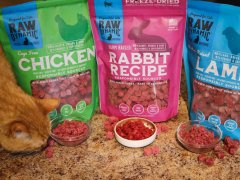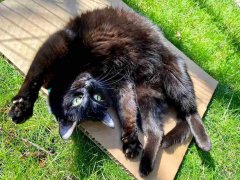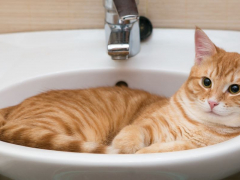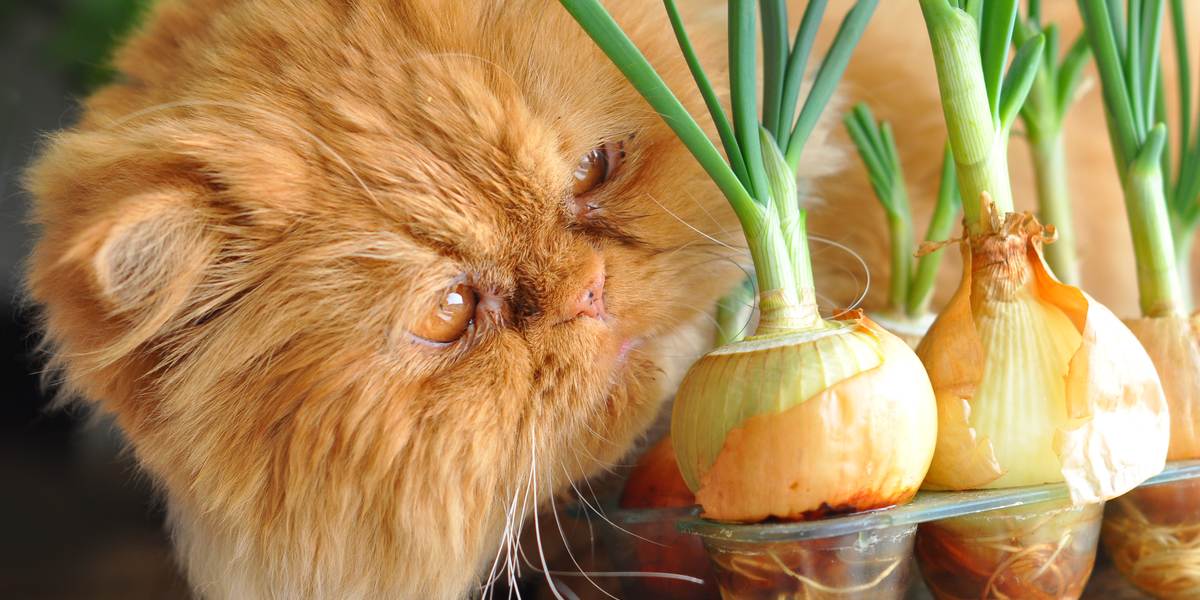
Onions are widely used in cooking to add flavor, as they are so versatile. They are grown all over the world and can be boiled, fried, roasted, baked, or even eaten raw. There are several varieties of onion, and they come in a range of sizes, shapes, and colors, each with a slightly different flavor.
The most common are red, white, and yellow. Onions are also closely related to garlic, chives, leeks, scallions, and shallots. It is thought that onions could have many health benefits as they are rich in antioxidants and sulfur-containing compounds.
Cats cannot eat onions as they are highly toxic. If your cats get their paws on any food containing onion, then you will need to make a trip to the vets straight away.Quick Overview: Can Cats Eat Onion





Summary of Content
Also Read: What Can Cats Eat? 36 Human Foods Cats Can Eat – and 8 They Can’t!
Even just a small amount of onion is very dangerous for your feline friend. Onion ingestion causes a condition called hemolytic anemia, where red blood cells are destroyed, reducing the amount of oxygen that can be carried around the body. This is very serious and needs to be treated quickly to ensure a rapid recovery.
So, onions are very healthy and versatile vegetables for us humans, but not for cats. Keep reading to find out more!
The Risks of Eating Onion for Cats
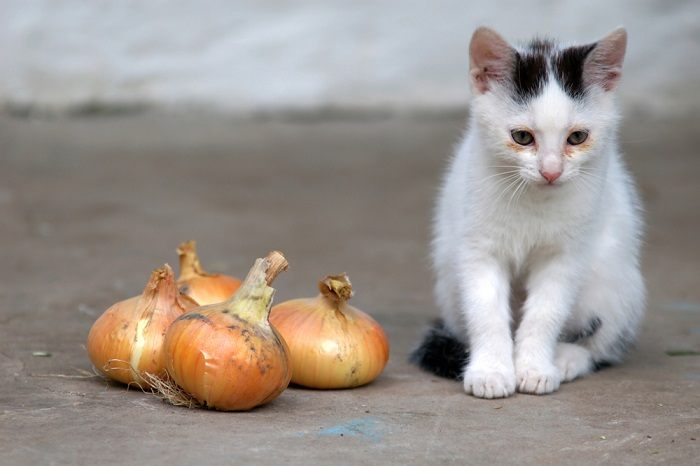
Onions are never used in commercial cat foods, as it is very poisonous to cats.
Onions are very dangerous for cats and can make them very unwell or even be fatal. If you think your cat might have eaten raw or cooked onion, or onion powder then you should take them to the vet straight away.
Onions contain an oxidant – n-propyl disulfide, which when eaten and absorbed into the bloodstream binds to red bloods. Unfortunately, cats are highly sensitive to this oxidation of the red blood cells, and the body recognises it as foreign.
The cat’s body then destroys the entire red blood cell, a process known as hemolysis. The result is fewer circulating red blood cells, meaning that the body cannot carry as much oxygen as it should.
Symptoms of onion poisoning in cats include:
- Panting
- Increased heart rate
- Weakness
- Blood in the urine
- Vomiting
- Diarrhoea
- Labored breathing
- Lethargy
- Collapse
Treatment for onion poisoning is supportive and consists of intravenous fluid therapy and hospitalization with regular blood tests. If caught and treated early, cats will start to produce new red blood cells in their bone marrow which are healthy, and replace those that have been destroyed.
In severe cases, cats might need a blood transfusion to help replenish their red blood cells and ensure adequate oxygen delivery to the cells in their body.
Recovery depends on how much onion a cat has eaten, and how well they respond to treatment. Some cats will improve within hours, others might take days. If veterinary treatment is not accessed quickly enough, however, onion poisoning can be fatal.
Also Read: 15 Human Foods That Are Poisonous & Toxic To Cats
How Much Onion Can a Cat Eat?
Cats should not be allowed to eat any onion, whether it is raw, cooked, or mixed in with other foods. It is highly toxic and very dangerous for your feline friend. Even the smallest amount of onion is dangerous, with the toxic dose being 1g of onion per 5lb of body weight.
Onion powder is particularly toxic as it is very concentrated, so it can even be more dangerous than fresh onion.
How Often Can a Cat Eat Onion?
Cats should never onions (including fresh onions, cooked onions, or onion powder). You should avoid feeding your cat any human food that contains onion and keep any onion products out of reach to avoid your feline friend getting their paws on it.
Are Onions Used in Commercial Cat Food?
Onions are never used in commercial cat foods, as it is very poisonous to cats. Flavor is added to cat food in other ways using meat, fish, and vegetables.
Also Read: 5 Vegetables Cats Can Eat (And 5 To Avoid!)
Do Cats Like the Taste of Onion?
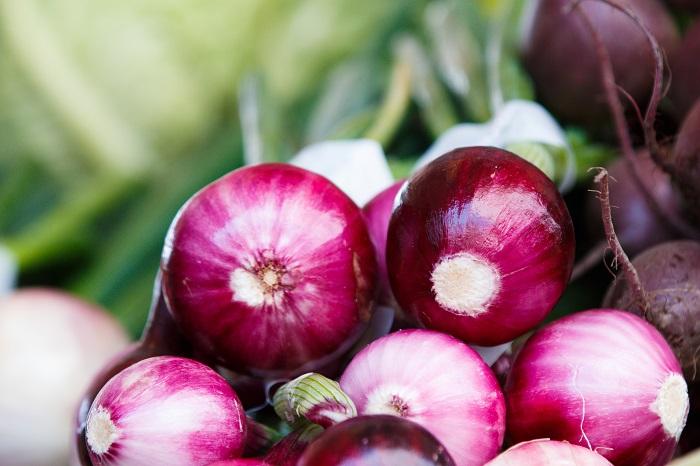
Cats don’t generally like the taste of onion, especially on its own. However, onions that have been cooked or prepared with other foods might be more appealing to cats, causing them to eat them. If your cat has eaten any food containing onion you should take them to the vet straight away.
Final Thoughts
Onions are packed with nutrition and are a widely versatile vegetable for us humans to use in a variety of dishes. However, we cannot share these dishes with our cats as onions are poisonous and cause a severe form of anemia where red blood cells are destroyed.
If your cat has got their paws on any type of onion, including onion powder, raw, or cooked onion then you need to take them to the vet for treatment straight away. It is always best to keep dangerous foods out of your cat’s reach, and to avoid feeding them any scraps that might contain onion!
Also Read: Are Fruits And Vegetables Safe For Cats? What Every Cat Owner Should Know
Frequently Asked Questions
Can cats eat green onions?
No, cats cannot eat green onions. Any amount of onion Is very poisonous to cats and can make them very sick.
Can cats eat leaves of green onions?
No, cats should not eat green onion leaves. Any amount of onion or onion-containing food is poisonous to cats and can make them very sick.
Can cats eat meat cooked with onions?
Cats should not eat any food containing onion as even just a small amount of it is toxic and can make your cat very unwell. You should avoid feeding your cat meat cooked with onions.



